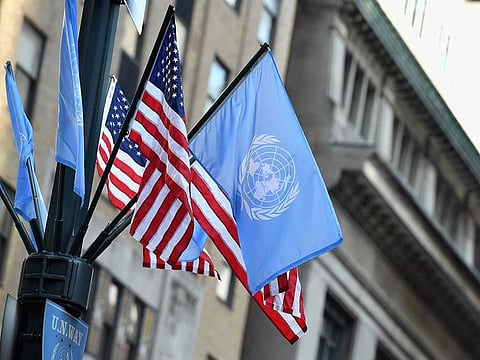UN forecasts pandemic to shrink world economy by 3.2%
Before the pandemic, the UN had forecast a modest acceleration in growth of 2.5%

The United Nations forecast Wednesday that the COVID-19 pandemic will shrink the world economy by 3.2% this year, the sharpest contraction since the Great Depression in the 1930s.
The UN's mid-year report said the novel coronavirus is expected to slash global economic output by nearly $8.5 trillion over the next two years, wiping out nearly all gains of the last four years.
In January, before COVID-19 became a pandemic, the UN had forecast a modest acceleration in growth of 2.5% in 2020.
But U.N. chief economist Elliott Harris told a news conference launching the report that the global economic outlook "has changed drastically" since then, with the pandemic's death toll climbing toward 300,000.
"With the large-scale restrictions of economic activities and heightened uncertainties, the global economy has come to a virtual standstill in the second quarter of 2020," he said. "We are now facing the grim reality of a severe recession of a magnitude not seen since the Great Depression."
The 3.2% contraction in the global economy forecast by the U.N. is slightly higher than the 3% plunge forecast by the International Monetary Fund in mid-April.
The IMF forecast that the global economy will rebound in 2021 with 5.8% growth though it said prospects next year are clouded by uncertainty. The U.N. forecast more modest 3.4% growth in 2021.
The United Nations World Economic Situation and Prospects report also forecast a 15% contraction in world trade in 2020 as a result of sharply reduced global demand and disruptions in global supply chains.
The report said the pandemic is "exacerbating poverty and inequality,'' with an estimated 34.3 million people likely to fall below the extreme poverty line of $1.90 a day in 2020 _ 56% of them in Africa.
It said an additional 130 million people may join the ranks of people living in extreme poverty by 2030, dealing a "huge blow'' to global efforts to eradicate extreme poverty and hunger by the end of the decade.
Sign up for the Daily Briefing
Get the latest news and updates straight to your inbox







